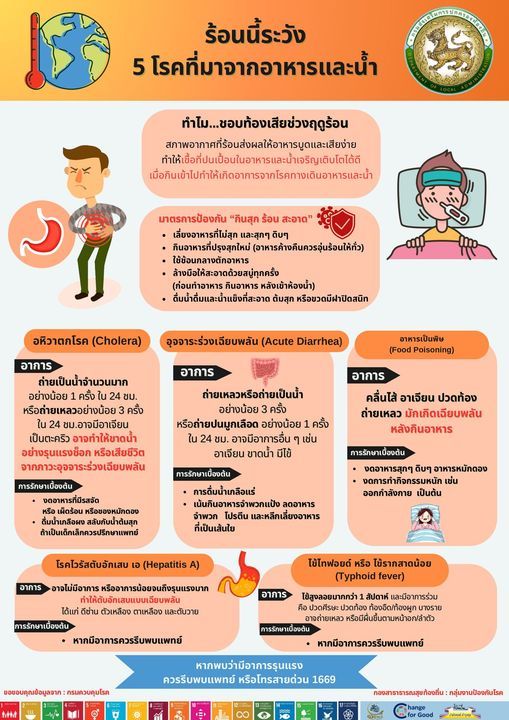The summer months bring not only warmth and sunshine but also a heightened risk for a variety of health concerns, particularly those arising from food and water sources. As temperatures rise, so does the potential for certain bacteria to thrive, which can lead to a range of gastrointestinal illnesses. Awareness and preventive measures are key to ensuring a healthy season.
Recognizing the Risks: Common Summer Illnesses
During the warm summer months, the following gastrointestinal diseases are more prevalent:
Cholera
A serious infection of the intestines caused by the bacterium Vibrio cholerae, cholera can lead to severe dehydration and even be life-threatening if not treated promptly.
Acute Diarrhea
Rapid onset of diarrhea can signify various infections. It’s important to stay hydrated and seek medical advice if symptoms persist.
Food Poisoning
Consuming contaminated food can cause a wide array of symptoms ranging from mild discomfort to severe illness. Common culprits include bacteria such as Salmonella, E. coli, and Listeria.
Hepatitis A
This viral liver disease is transmitted through ingestion of contaminated food or water. Vaccination is available for prevention.
Typhoid and Paratyphoid Fever
Caused by Salmonella Typhi and Paratyphi bacteria, these fevers can be severe and are transmitted through contaminated food or water.
Preventive Measures: Safety in the Kitchen and Beyond
Safe Food Preparation
To avoid foodborne illnesses, always opt for hot, freshly cooked meals. Ensure meats are thoroughly cooked, and be cautious with raw fruits and vegetables unless you can peel or wash them with clean water.
Food Storage
Proper food storage is vital. Keep edibles securely sealed and refrigerated when necessary. Be vigilant to prevent insects, especially flies, from coming into contact with your food.
Drinking Water Safety
Drink only from safe water sources. If in doubt, boil water before drinking or use water purification methods.
Personal Hygiene
Regular hand washing with soap and clean water, particularly before meals and after using the restroom, is essential in preventing the spread of infectious diseases.
When to Seek Medical Help
If you or a loved one experience severe symptoms such as persistent diarrhea, vomiting, high fever, jaundice, or signs of dehydration, do not hesitate to seek professional medical attention. Immediate action can be the difference between a quick recovery and serious health complications.
Contacting Health Authorities
In case of emergency or if symptoms are severe, calling the emergency hotline can provide the necessary guidance and support. Remember, it’s better to be safe and get checked by a healthcare provider if you suspect you might be affected by any food or waterborne disease.
Taking these precautions can help ensure that you and your family stay healthy and enjoy the summer without the interruption of preventable illnesses. Stay informed, stay vigilant, and take care of your health to make the most of the sunny season.




